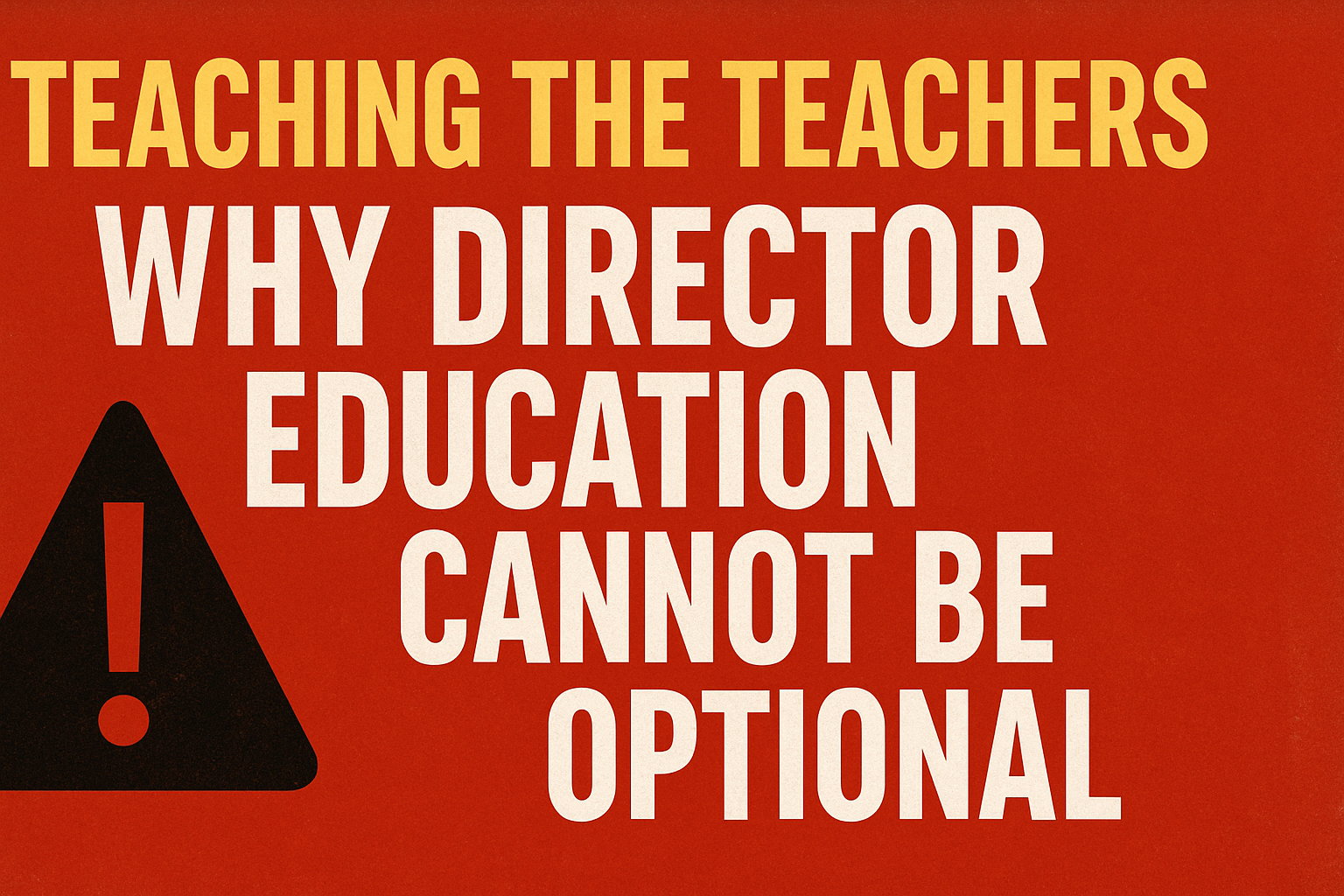
We entrust association boards with guiding organizations through turbulent times, yet we too often send directors into that work unprepared. Unlike corporate boards, where director education is usuallyassumed, nonprofit associations still treat it as an afterthought or a reward for long-term membership.
This must change.
Education as Fiduciary Duty
Serving on a board is not simply a volunteer commitment; it is a fiduciary responsibility. Directors cannot discharge their duty of care if they do not understand governance principles, ethical obligations, and the strategic context in which their organization operates.
Education, then, is not courtesy. It is a necessity. And it must be ongoing.
The Current Reality
Many directors begin their service with enthusiasm but without preparation. They know their profession or industry well but are unfamiliar with nonprofit governance, legal duties, or adaptive leadership. They are then asked to make decisions with far-reaching implications.
The result? Boards that default to rubber-stamping staff recommendations, revisiting old debates, or focusing on minutiae and endless reports.
What Effective Education Looks Like
A robust director’s education program should include:
- Comprehensive orientation that covers governance principles, strategic priorities, and fiduciary duties.
- Continuing education in foresight, adaptive leadership, and systems thinking.
- Peer learning through retreats, facilitated dialogues, and case studies.
- Assessment and feedbackenable directors to understand where they are growing and where they need development.
This is not about creating experts in every field. It is about ensuring directors have the shared language, skills, and mindset to govern effectively.
Call to Action
Put the director’s education on your next board agenda. Ask: What is our responsibility to one another—and to our members—to ensure we are learning continuously as directors? Then commit resources to make it happen. Education is not optional. It is essential.